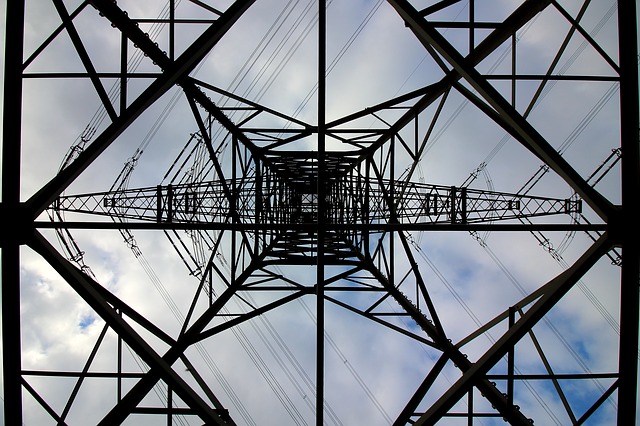Japan has always had a shortage of energy resources, specifically hydrocarbons. The Japanese also lack other valuable natural resources. As a result, the Japanese have become one of the hardest working peoples on the face of the earth.If the Japanese didn’t work 24/7, they wouldn’t be able to feed their economy or their people.
Having no oil resources, Japan has focused on upstream oil and natural gas projects using its considerable know-how and talent in engineering, construction, project management, and finance.
As the US has done, Japan recently began liberalizing their energy markets, granting foreign companies access to the Japanese energy market. The same occurred in the telecommunications market in Japan in the 1990s as liberalization occurred, stimulating competition from abroad and serving as an impetus for innovation by Japanese companies.
Today, Japanese automotive companies Toyota, Nissan, Honda, and six large oil and gas companies have started working with energy companies at home and abroad to develop fuel-cell technology. J-Power, for example, part of the “Electric Power Council or a Low Carbon Society” (ELCS) in Japan includes 36 Japanese energy companies.
For frequent updates on how Japan’s energy sector is being reformed, a good source is NERA Economic Consulting as well as the Brookings Institution which published the 71-page report, “Transforming the Electricity Portfolio: Lessons from Germany and Japan in Deploying Renewable Energy.”
The following video looks at energy deregulation in Japan in “How does Japan Energy Deregulation Impact Japanese Citizens.”
Following are some common energy acronyms used in the report from Brookings:
- ANRE Agency for Natural Resources and Energy (Japan)
- BNetzA Bundesnetzagentur (German Federal Network Agency)
- BMU Federal Ministry for the Environment, Nature Conservation, and Nuclear Safety (Germany)
- BMWi Federal Ministry of Economics and Technology (Germany)
- CESifo Ifo Institute, Center for Economic Studies, Group Munich (Germany)
- CO2 Carbon Dioxide
- DC Direct Current
- DENA German Energy Agency
- DICE Database for Institutional Comparisons in Europe (CESifo)
- DOE United States Department of Energy
- EEG Erneuerbare Energien Gesetz (German Renewable Energy Act)
- EEX European Energy Exchange (Leipzig, Germany)
- EIA U.S. Energy Information Administration
- ENTSO-E European Network of Transmission System Operators for Electricity
- EPA U.S. Environmental Protection Agency
- EPRI Electric Power Research Institute
- ESI Energy Security Initiative (Brookings Institution)
ETS Emissions Trading System (European Union) - EU European Union
- FERC Federal Energy Regulatory Commission
- FIT Feed-in-Tariff
- GHG Greenhouse gas
- GW Gigawatt
- GWh Gigawatt hour Hz Hertz
- IEA International Energy Agency
- IPP Independent power producer
- ITO Independent transmission operator
- kV Kilovolts
- kW Kilowatt
- kWh Kilowatt Hour
- LCOE Levelized Cost of Energy
- LNG Liquefied natural gas
- METI Japanese Ministry of Economy, Trade and Industry mmbtu One Million British Thermal Units
- MW Megawatt
- MWh Megawatt hour
- NABEG Grid Expansion Acceleration Law (Germany)
- NREL National Renewable Energy Laboratory
- O&M Operations & Maintenance
- OCCTO Cross-regional Coordination of Transmission Operators (Japan)
- OECD Organization for Economic Co-operation and Development
- PURPA The United States Public Utility Regulatory Policies Act
- PV Photovoltaic
- RGGI Regional Greenhouse Gas Initiative (United States)
- RPS Renewable Portfolio Standard
- RWE Rheinisch-Westfälisches Elektrizitätswerk AG
- StrEG Stromeinseisungsgesetz (Electricity Feed-In Law of 1990, Germany)
- TEPCO Tokyo Electric Power Company
- TSO Transmission system operator
- TWh Terawatt hour
And the following also appeared in the Brookings report:
KEY LESSONS
- High levels of renewable energy penetration in the electricity mix are possible, providing a viable option to meet environmental, energy security, and economic goals.
- A large share of renewable energy in the electricity portfolio requires a coordinated transformation of the entire electricity sector.
- Policy must address costs and issues of equity, be tailored to local conditions and market oriented, adaptable and geared toward creating renewable “investors” or “constituents” across a wide swath of society.
- Policy should promote flexible markets and ensure that a comprehensive approach to transmission and operational integration is in place.
- Policymakers need to avoid the creation of large stranded assets and foster regulatory approaches that allow utilities to pursue new business models.







